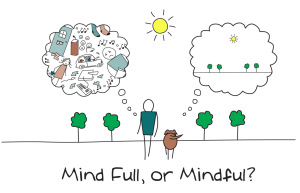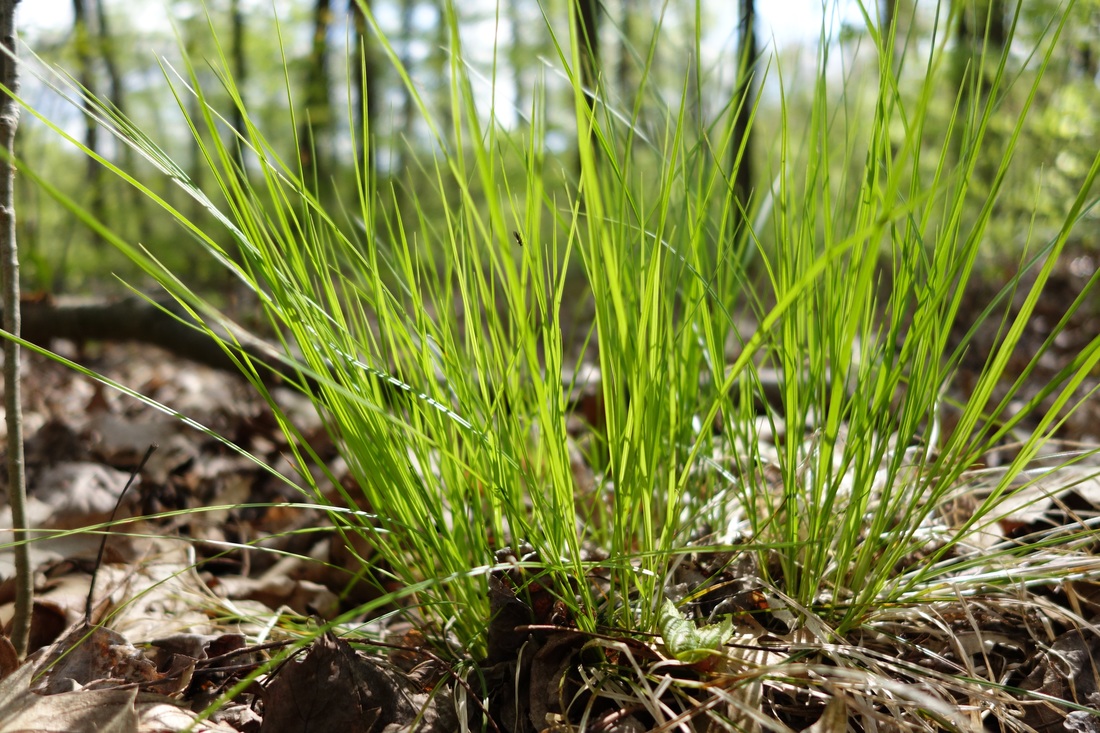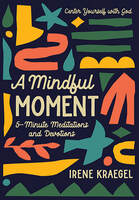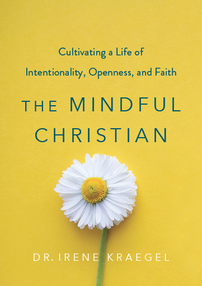|
What are you thinking about right now -- is your mind here, in the same place as your body? Most of the time, our minds are elsewhere. We ruminate about difficult memories from the past. (What did that person mean by that comment?... Why wasn't that handled differently?... What if I had made a different decision?...) We ruminate about anticipated difficult things in the future. (What if it's awful?... What will people think of me?... What if I can't handle it?...) In this way, our mind creates much of its own suffering. It is easy to believe that thinking about past or future difficulties is helpful, and occasionally it is. Most of the time, however, our thinking is unhelpful and stuck. We create problems in our minds through negative looping, largely outside of our awareness. This pulls us into painful emotions that are disconnected from the reality of the present moment. When we pay attention to now, we can often find that we are okay in unexpected ways. "The evidence is clear: brooding is the problem, not the solution." Thinking is just one element of our experience in each moment. As long as we are alive, we are thinking. Our brain generates thoughts, one after another, in much the same way that our hearts pump blood and our lungs breath air. The goal of mindfulness is not to stop thinking. Instead, the goal is to work skillfully with thoughts, recognizing that they are only one element of each moment. They do not control us, they are not facts. They are simply experiences passing through the mind. We can decide what to do with them and how to respond. God speaks in many ways beyond our thoughts, and He reaches our thoughts in many ways beyond our ruminating. He is here in the feeling of a breeze on skin, in the smile of a stranger, in that first sip of morning coffee, in the support of a chair. He creates and fills the sounds of the birds, the warmth of sunshine, the reflection in a puddle of water. He dwells within the green grass, the icy snow, the wet rain, the desert heat. Each step you take is in God, each breath you take. God is always here. "Silence of the heart is necessary so you can hear God everywhere — in the closing of the door, in the person who needs you, in the birds that sing, in the flowers, in the animals." For me, mindfulness is the practice of being where God is -- here. Over and over, whenever I notice that my mind has wandered away, bringing awareness back to this place and this moment. This is a powerful psychological tool on its own, even without any faith application -- awareness is deeply healing for the mind, body, and spirit. But when you take this present-moment awareness and add an openness to God's presence, you are opening yourself up to a whole other level of goodness. You are following an ancient faith tradition of training the mind to be present to God. God is here. I use mindfulness to practice being here too.
8 Comments
HP
6/26/2016 09:16:49 am
I enjoyed this post very much and also the materials of the website. It is very interesting and heartening to find Christian perspective of mindfulness. I have tried to practise mindfulness yet at the same time fearful if it is biblical. Your writings have clarified a lot of things. Thank you
Reply
Irene
6/26/2016 01:04:57 pm
Thank you for the feedback -- I am glad to know that this has been helpful! Blessings to you. -Irene
Reply
Laura
6/29/2016 09:35:59 am
Irene, I love this post so much and find it so helpful. I love your writing and feel so thankful you write these things down. I so want you to write a book. Peace to you my friend, Laura
Reply
Irene
6/29/2016 11:00:03 am
Thank you Laura -- that means so much to me! Looking forward to seeing you when you're home again... -Irene
Reply
7/9/2016 09:57:02 am
What an interesting site. Just got here for the first time. you have a gentle, friendly and open way of writing which I appreciate.
Reply
7/9/2016 10:01:38 am
well, just got back from reading more (and I must go after this - putting off finishing a psych eval at the moment:>). This is a really good site.
Reply
7/9/2016 10:32:19 am
Ok, just finished one report (3 more to go on this rather gray yet strangely and wistfully nostalgic Saturday morning in July). Just read your mindfulness post on worship and curiosity. It got me to thinking about the contemporary attempts to bring Buddhism into secular culture, and related attempts to bring contemplation into Christian mainstream culture.
Reply
Irene
7/9/2016 10:10:12 pm
Hi Don,
Reply
Leave a Reply. |
Author
I am Irene Kraegel. I am licensed as a clinical psychologist and teach mindfulness on a faith-based university campus. I practice mindfulness because it opens me up to God (a.k.a. brings joy). I am writing here in hopes of sharing some of my experiences and thoughts related to the practice of mindfulness in the life of a Christian. Thanks for reading! Books
Blog archives
December 2023
|




